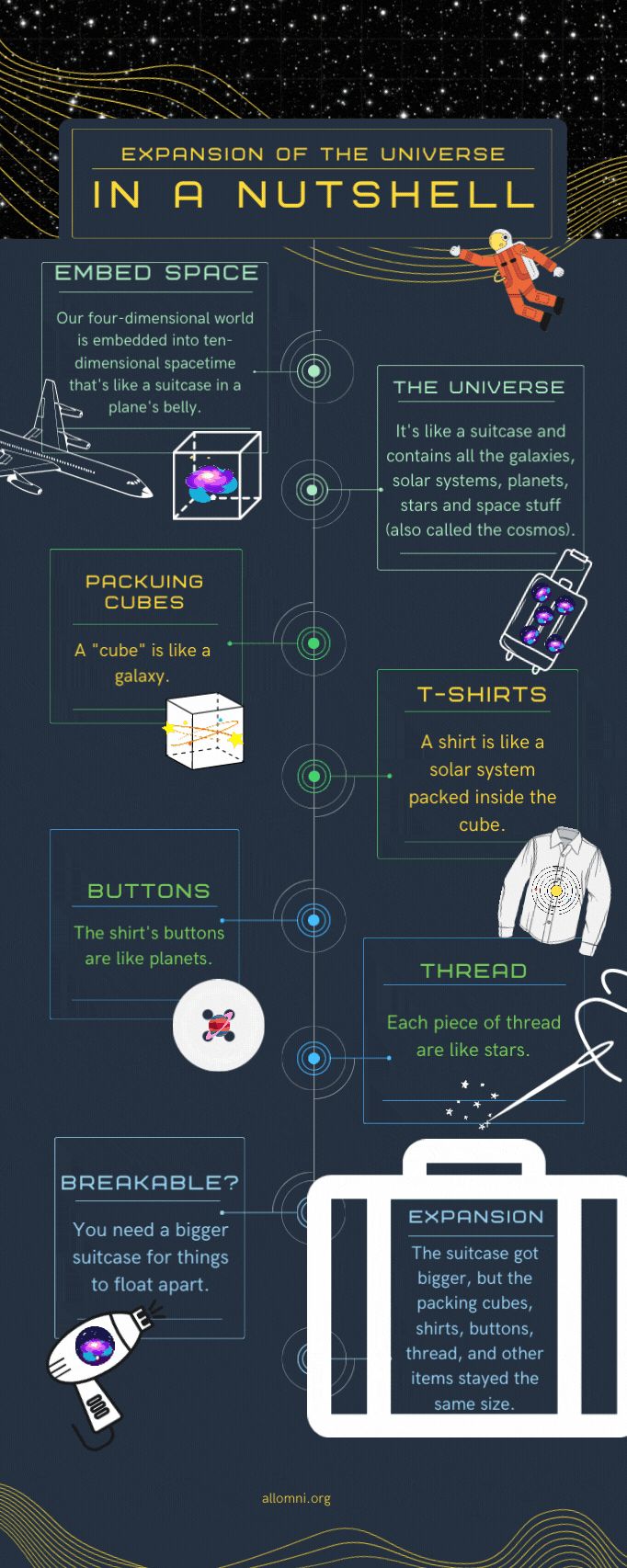Is Our Universe Shrinking or Expanding?
Our universe can best be described as a suitcase—and this is what that suitcase might look like.
It’s speculated around the universe is embed space, that’s our four-dimensional world embedded into ten-dimensional spacetime. It’s like a suitcase in a plane’s belly.
Inside that suitcase are packing cubes to organize some button-down shirts, like the galaxies. Each shirt represents a solar system, and each button is like a planet. The thread that holds the garment together is like stars.
But no one packs only shirts. Instead, you might pack breakable items, like sunglasses, a blowdryer, and sunscreen (you wouldn't want that getting all over your suitcase). So, then, you opt for a giant bag to put the same amount of stuff inside it, effectively giving everything more room to breathe.
So, the actual container got bigger—not the packing cubes or shirts.
When the universe expands, we don’t get bigger (like our galaxy or Earth suddenly getting more massive). And we don’t get smaller either (to make more room for the universe to grow). That’s because galaxies are gravitational bond together—sort of like packing cubes.
There's more space to spread out if the distance between our galaxies grows or stretches with that expansion. So, therefore, only the space expands or extends, not the celestial bodies themselves.
That’s universe expansion in a nutshell.
How can we tell our universe is expanding?
The redshift is one of many measurements that helps us understand the universe's expansion.
It’s safe to say as we grow our consciousness of the universe and combine it with better technology, we see more expansion. So here at omni, when we think about the universe's development, we instantly think about the chicken and the egg debate—are we observing the universe more, therefore seeing growth, or are we better able to measure the expansion we now see?
